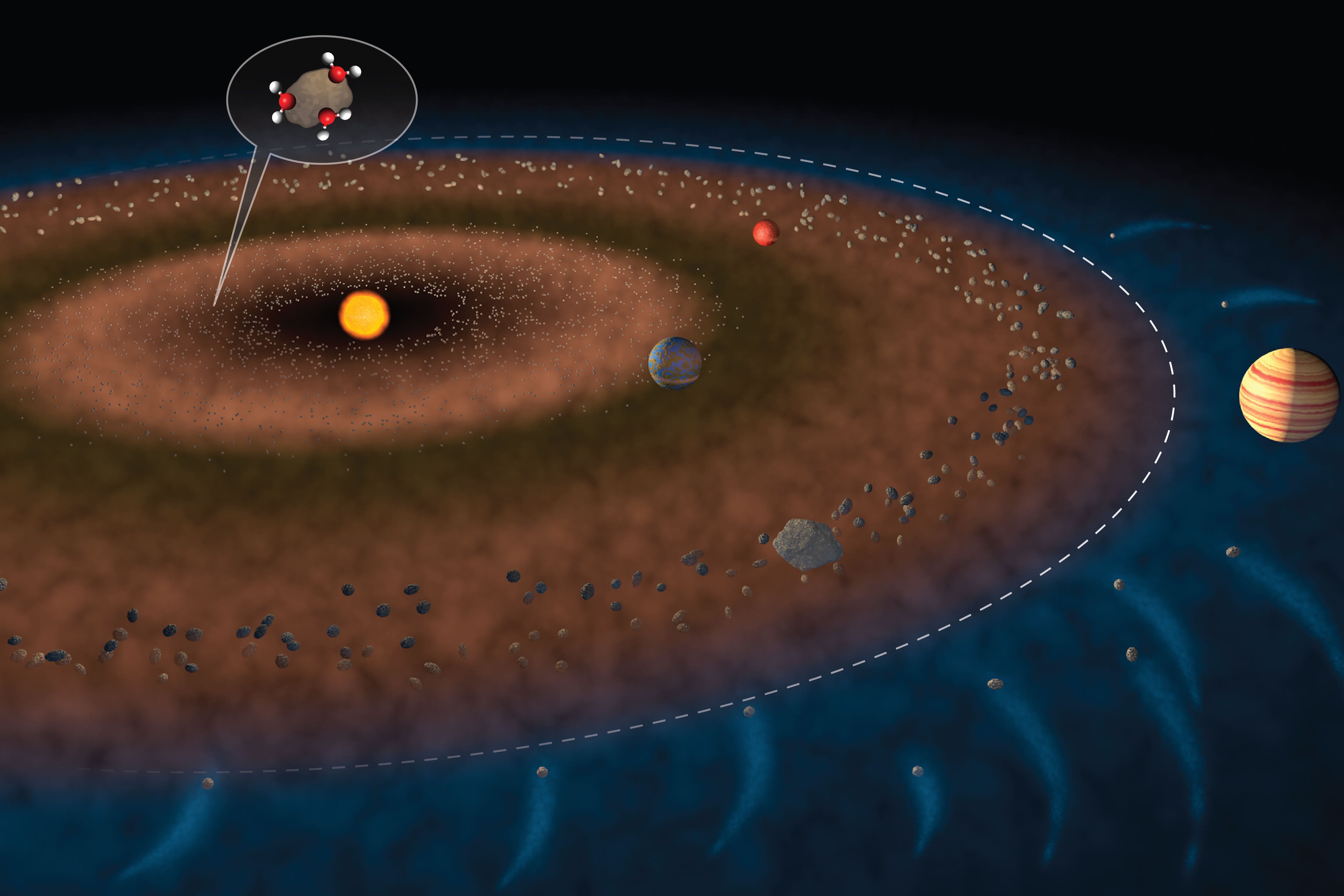Earth’s water did not come from melted meteorites – study
Researchers analysed melted meteorites that had been floating around in space since the solar system around 4.5 billion years ago

Your support helps us to tell the story
From reproductive rights to climate change to Big Tech, The Independent is on the ground when the story is developing. Whether it's investigating the financials of Elon Musk's pro-Trump PAC or producing our latest documentary, 'The A Word', which shines a light on the American women fighting for reproductive rights, we know how important it is to parse out the facts from the messaging.
At such a critical moment in US history, we need reporters on the ground. Your donation allows us to keep sending journalists to speak to both sides of the story.
The Independent is trusted by Americans across the entire political spectrum. And unlike many other quality news outlets, we choose not to lock Americans out of our reporting and analysis with paywalls. We believe quality journalism should be available to everyone, paid for by those who can afford it.
Your support makes all the difference.Earth’s water did not come from melted meteorites as previous theories had suggested, researchers say.
Water makes up 71% of Earth’s surface, but it is not yet known how or when such massive quantities of water arrived on the planet.
But scientists say their new study brings them one step closer to answering that question.
Researchers analysed melted meteorites that had been floating around in space since the solar system formed some 4.5 billion years ago.
We wanted to understand how our planet managed to get water because it’s not completely obvious
The study, led by University of Maryland assistant professor of geology Megan Newcombe, found that these meteorites had extremely low water content, and some of the driest extra-terrestrial materials ever measured.
Ms Newcombe said: “We wanted to understand how our planet managed to get water because it’s not completely obvious.
“Getting water and having surface oceans on a planet that is small and relatively near the sun is a challenge.”
Researchers say their findings allow them to rule meteorites out as the primary source of Earth’s water, and could have important implications for the search for water – and life – on other planets.
They also help scientists understand the unlikely conditions that aligned to make Earth a habitable planet.
The study looked at seven melted, or achondrite, meteorites that crashed into Earth billions of years after splintering from at least five planetesimals – objects that collided to form the planets in our solar system.
This experiment was the first time anyone had ever measured the properties in this way, because these meteorites fell to Earth only recently.
Some of the meteorite samples came from the inner solar system, where Earth is located and where conditions are generally assumed to have been warm and dry.
In order to be able to understand these other solar systems, we want to understand our own
Other rarer samples came from the colder, icier outer reaches of our planetary system.
It was generally thought that water came to Earth from the outer solar system, but it has yet to be determined what types of objects could have carried that water.
Sune Nielsen, a study co-author and geologist at the Woods Hole Oceanographic Institution, said: “We knew that plenty of outer solar system objects were differentiated, but it was sort of implicitly assumed that because they were from the outer solar system, they must also contain a lot of water.
“Our paper shows this is definitely not the case. As soon as meteorites melt, there is no remaining water.”
After analysing the achondrite samples, researchers discovered that water comprised less than two millionths of their mass.
Whereas the wettest meteorites – a group called carbonaceous chondrites – contain up to 20% of water by weight, or 100,000 times more than the meteorite samples studied in the research published in Nature.
Ms Newcombe said: “Water is considered to be an ingredient for life to be able to flourish, so as we’re looking out into the universe and finding all of these exoplanets, we’re starting to work out which of those planetary systems could be potential hosts for life.
“In order to be able to understand these other solar systems, we want to understand our own.”